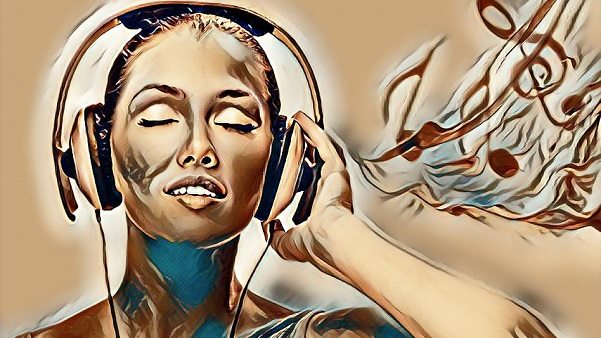What can take us through a range of emotions within a few moments? What can provide a peaceful, safe place to escape from our thoughts, move with us through highs and lows, like a drug without any side effects? Music. Join us as we explore the healing power of music and why it may be the perfect remedy your doctor may never prescribe. Yes, those beats are good for your brain!
From to Lata Mangeshkar to Michael Jackson, at parties and during prayers, music can get our hearts racing and feet moving. The fusion of melodies, instruments, vocals and lyrics can provide a safe outlet to express ourselves and escape our thoughts. With the increase of stress levels and mental health issues (13.7% of India’s general population live with a mental disorder), it seems we need healthy ways to elevate our moods more than ever. Turning up the tunes is a daily, happy habit and we’ve heard rumors it’s a healthy one is that really true? Or, is it a fabricated fib by the music industry (which in India lone is set to generate $300 million US dollars in 2019)?

Does Listening To Music Really Have Healing Powers?
According to scientific, psychological studies, yes! Research shows that music therapy (when can help people suffering with mental illnesses including anxiety and depression (which combined affect almost 7.5% of India’s population). Music therapy when practiced with a certified professional and used in collaboration with other treatments, can also help those living with the mental illness schizophrenia. Music therapy works in two ways; the first is called active and involves a patient working with a therapist to create sound, lyrics and/or a melody. The second is receptive and involves a patient listening to music for relaxation (e.g. meditation).

The healing effects of music however, are not only present when practiced formally, music can be good for all of us and we don’t need a professional prescription to benefit from its power.
How Does Music Help Heal?
Physical effects: Music can help reduce high cortisol levels, blood pressure and heart rate. It can also help with the developmental work of motor skills, cognitive development and communication. Research shows that dancing comes naturally to babies; our bodies respond to music before we learn to speak. It’s no wonder babies are often seen smiling when we blast some beats or soothed into sleep with loving lullabies.

Psychological effects: Music has proven to increase energy levels and uplift our mood; it’s no wonder we often listen to motivating music while we exercise. Research also shows it can positively impact our autonomic nervous system, and stress receptors to relax the mind so turn on some calming music next time you feel surrounded by chaos!
With listening to music being our second favorite hobby (second only to magazine reading of course), we’re pleased to say the rumor on music having healing power is real. So grab an instrument, a mic or turn up the tunes and let the magic of music take some of your troubles away!
Main Image Photo Credit: www.semonegna
Rachna Sethi
Author
Rachna (@thesassyspiritual) is a graduate of the Applied Mindfulness Meditation program from the University of Toronto, a certified Educator with two bachelor degrees and a diploma in Art Therapy. She's dedicated to living with a compassionate approach. Committed to helping people integrate Mindfuln...














































































































